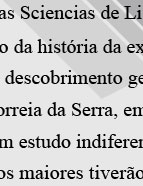

................................
In Portuguese historiography, the publication of the monumental and pioneering works of the 2nd Viscount of Santarém, continued by Rebelo da Silva, provided an essential documentary foundation for the analysis of national diplomacy. A diplomat and keeper of the Torre do Tombo, Santarém was definitively exiled to France following the Liberals' victory, where he gained access to abundant material and continued his historical work. He published the Quadro Elementar das Relações Políticas e Diplomáticas de Portugal [Elementary Framework of the Political and Diplomatic Relations of Portugal ] (15 volumes, 1842-1854) and Corpo Diplomático Português[ Portuguese Diplomatic Corps], Vol. I (1846), detailing the relations between Portugal and Spain from 1168 to 1383. According to Santarém, this work aimed to "truly understand the important science of negotiating", linking political decisions enacted through treaties not only with the negotiations that prepared them but also with the physical, moral, commercial, and political statistics of each power involved. However, his successors diverged between those who preferred transcribing documents in full and those who advocated for their summarised extracts, with the latter view supported by the Viscount himself, arguing that this approach would facilitate a swifter collection and broader dissemination of sources. The result was the slow and incomplete publication of the Corpo Diplomático Português (1862-1959), which was reinitiated by Rebelo da Silva. The 15 published volumes are based on the relations between Portugal and the Roman Curia, from the reign of King Manuel to the regency of the future King Pedro II.
In line with the large documentary collections being published in Germany, France, England, and other countries, the Lisbon Academy of Sciences commissioned Alexandre Herculano to undertake the project of compiling the Portugaliae Monumenta Historica, with its publication beginning in 1856. Ten years later, the brief third government of Joaquim António de Aguiar (4 September 1865 to 4 January 4,1868) tasked Luz Soriano with writing the História da Guerra Civil e do Estabelecimento do Governo Parlamentar em Portugal [History of the Civil War and the Establishment of Parliamentary Government in Portugal]. Completed in 1884, the work spanned 17 volumes and was particularly important due to the numerous and important documents it contained.
